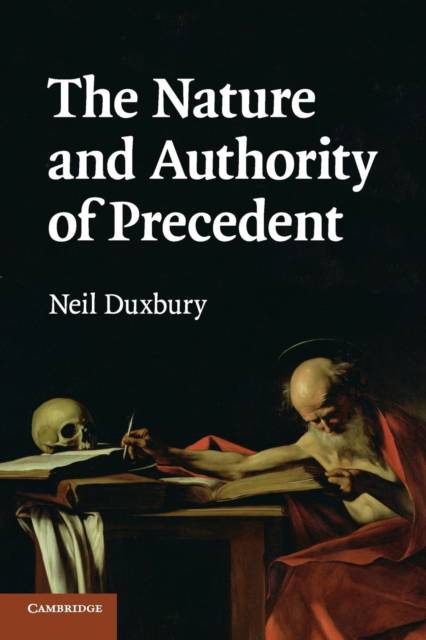
Door een staking bij bpost kan je online bestelling op dit moment iets langer onderweg zijn dan voorzien. Dringend iets nodig? Onze winkels ontvangen jou met open armen!
- Afhalen na 1 uur in een winkel met voorraad
- Gratis thuislevering in België vanaf € 30
- Ruim aanbod met 7 miljoen producten
Door een staking bij bpost kan je online bestelling op dit moment iets langer onderweg zijn dan voorzien. Dringend iets nodig? Onze winkels ontvangen jou met open armen!
- Afhalen na 1 uur in een winkel met voorraad
- Gratis thuislevering in België vanaf € 30
- Ruim aanbod met 7 miljoen producten
Zoeken
Omschrijving
Neil Duxbury examines how precedents constrain legal decision-makers and how legal decision-makers relax and avoid those constraints. There is no single principle or theory which explains the authority of precedent but rather a number of arguments which raise rebuttable presumptions in favour of precedent-following. This book examines the force and the limitations of these arguments and shows that although the principal requirement of the doctrine of precedent is that courts respect earlier judicial decisions on materially identical facts, the doctrine also requires courts to depart from such decisions when following them would perpetuate legal error or injustice. Not only do judicial precedents not 'bind' judges in the classical-positivist sense, but, were they to do so, they would be ill suited to common-law decision-making. Combining historical inquiry and philosophical analysis, this book will assist anyone seeking to understand how precedent operates as a common-law doctrine.
Specificaties
Betrokkenen
- Auteur(s):
- Uitgeverij:
Inhoud
- Aantal bladzijden:
- 206
- Taal:
- Engels
Eigenschappen
- Productcode (EAN):
- 9780521713368
- Verschijningsdatum:
- 2/06/2008
- Uitvoering:
- Paperback
- Formaat:
- Trade paperback (VS)
- Afmetingen:
- 150 mm x 224 mm
- Gewicht:
- 340 g

Alleen bij Standaard Boekhandel
+ 144 punten op je klantenkaart van Standaard Boekhandel
Beoordelingen
We publiceren alleen reviews die voldoen aan de voorwaarden voor reviews. Bekijk onze voorwaarden voor reviews.











